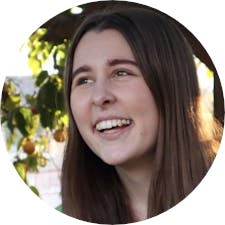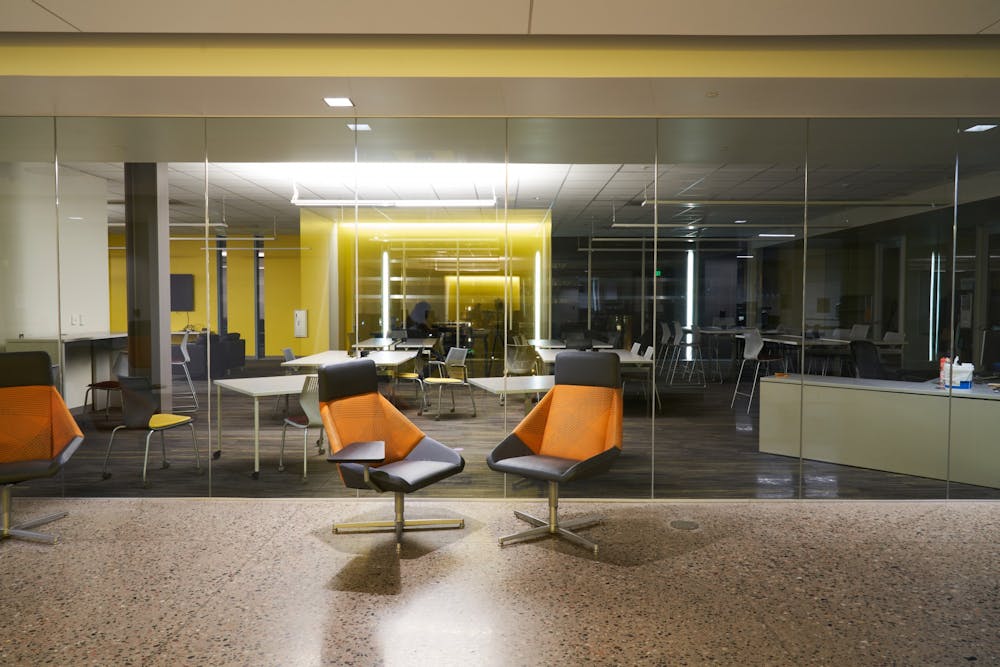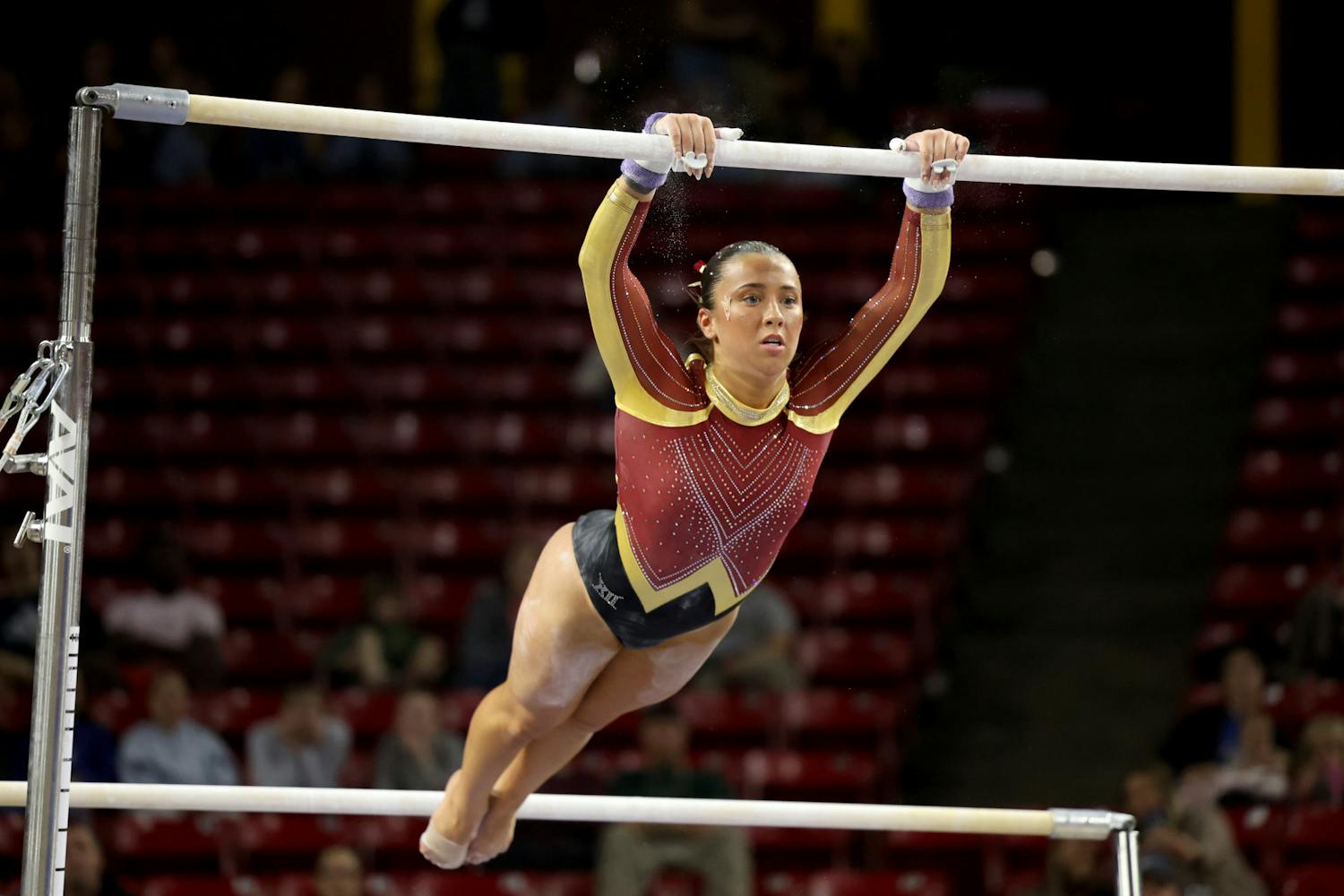The Council of Presidents are attempting to provide more support for multicultural centers on ASU's campuses; however, they have had little to no communication with the student-led group that advocated for ASU's creation of the spaces on what needs to be done to improve them.
The multicultural centers, named Multicultural Communities of Excellence by the University, are spaces on all four campuses meant to provide a space for students of color. Since the spaces formed, some students and University administrators have disagreed on the purpose of the centers and who exactly they are for.
The Council of Presidents is made up of the four undergraduate student government presidents and the Graduate and Professional Student Association president. Each year, they create a list of priorities and pillars to focus advocacy items toward.
One of the pillars this year is focused on diversity, equity and inclusion, which Elizabeth Chilton, the president of USG West, oversees. As part of its pillar, the COP is in a supportive role and hopes to provide resources and connections to the groups working in the space, said Chilton, a junior studying business administration.
"The meetings have primarily been focused ... more on presidents from our Council of Coalitions," said Nakita Saxon, the assistant director for cultural connections. "There has been representation from a few members of the Council of Presidents, they attend the meetings and provide insight."
Since the COP represents the entire student body and has not been part of the long-term process of implementing the multicultural spaces, the Multicultural Solidarity Coalition does not view their role as necessary to be in conversations for the purpose of the space.
The COP represents all students, while the Council of Coalitions and MSC, who have been the main groups involved in conversations for the spaces, focus on marginalized populations, making the groups' priorities very different, members of MSC said.
"With the Council of Presidents, that's taking an 'All Lives Matter' approach," said Sarra Tekola, a member of MSC and a doctoral student in sustainability. "Centering equity means that we don't think about all people, we think about specifically the most marginalized."
While MSC is not excluding them from the meetings, they don't think it is important for COP to be there.
"What we are looking for is that since they're not a major stakeholder, since this doesn't really affect them and their work, they don't need to be super involved," said Mastaani Qureshi, a member of MSC and co-president of ASU Women's Coalition.
The MSC started the push to have multicultural centers on campus and have advocated for the space on the Tempe campus for over six years.
On Sept. 23 a video went viral inside of the multicultural center when two white students — one with a computer displaying a "police lives matter" sticker and the other wearing a shirt that read "Didn't vote for Biden" — entered the space.
READ MORE: Viral confrontation in multicultural center exposes disconnect between ASU students, officials
Soon, a confrontation between them and members of MSC began. Following the incident, members of the MSC received letters from the Office of Student Rights and Responsibilities notifying them they allegedly violated policies in the Arizona Board of Regents' student code of conduct.
The incident displayed the disconnect between the University's understanding of the space and what many student leaders want for it, with the MSC saying the event would not have occurred if ASU had listened to its concerns. The University views the centers as a space for all students to converse and use, while MSC sees them as a place for marginalized students — students of color, LGBTQ+ students, female students and other marginalized individuals — to be centered and have programs and services for those students.
Each center on all four campuses has a working group that meets weekly to discuss the multicultural space with ASU administration. Members of COP have attended some of the meetings for the Tempe campus but have not had a large role in them, members of MSC said.
Chilton said there has been little personal communication between MSC and COP.
"I would like to see more conversations with them in the future," Chilton said. "I know as the lead of this pillar, that's something I could have worked on this semester."
COP's involvement in the Multicultural Communities of Excellence started with the previous administration, as it had originally been a goal of the predecessors.
"From what my predecessors told me, this is a space that should be heavily focused on the coalition members and cultural students, not necessarily student government leaders," Chilton said.
Due to the multicultural spaces being on the four different campuses and each having a separate working group, COP has had varying roles depending on the campus.
For the West campus, Chilton has connected with Kendra Hunter, the West dean of students, to see how the temporary space is coming along. Chilton has also been working to make the space open for all students at West, not just for cultural clubs.
The COP and Council of Coalitions also work together to have monthly meetings surrounding diversity and inclusion. These meetings cover many topics including cultural events and celebrations and multicultural spaces.
Currently, MSC has been frustrated with the lack of communication and meetings between the University and themselves. They are supposed to meet with Saxon every week on Thursday but due to cancelations, the group hasn't met in over two weeks.
Two committees, aesthetics and hiring, were created for the purpose of improving the space, which multiple MSC members are on. Yet, neither have met and the center is just less than three weeks away from its open house on Dec. 2.
Reach the reporter at mcfisch4@asu.edu and follow @morgfisch on Twitter.
Like The State Press on Facebook and follow @statepress on Twitter.
Continue supporting student journalism and donate to The State Press today.

Morgan Fischer is the politics editor, she works with her desk to cover topics related to politics in the ASU community. She has previously worked as an intern for RightThisMinute.




